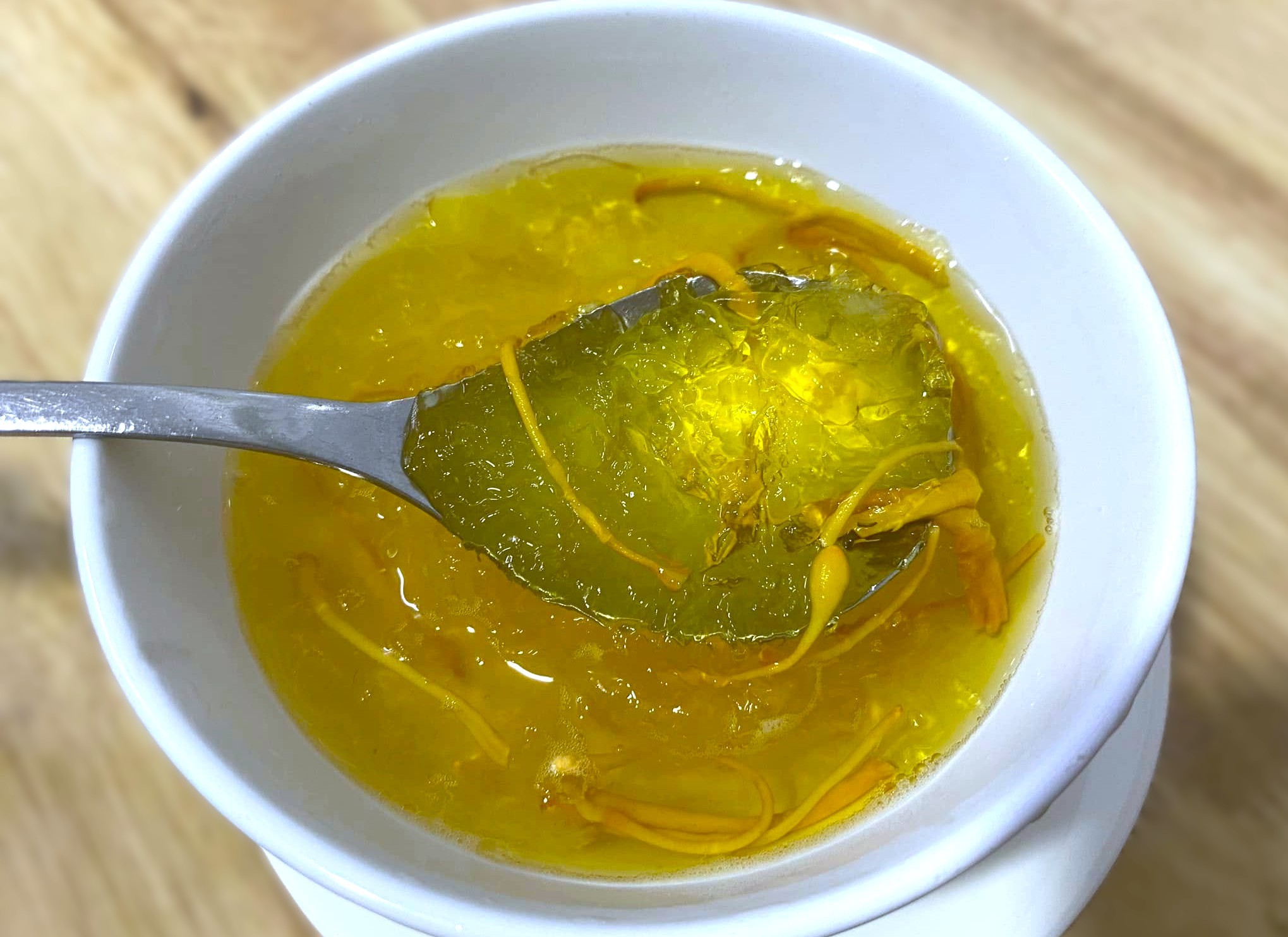Answer:
Bird's nest is a nutrient-rich food containing protein, amino acids, minerals, and B vitamins, making it beneficial for health, especially for older adults, those who are ill, or have weakened immune systems. However, incorrect dosage, improper consumption, or consuming counterfeit or low-quality bird's nest can have adverse health effects.
Even though your 4-year-old is underweight, they shouldn't consume bird's nest daily. Stick to the recommended intake advised by a nutritionist. Bird's nest is high in protein, and excessive consumption can be harmful to a child's body, leading to nutrient overload and digestive issues. Furthermore, bird's nest is often prepared with rock sugar, and frequent consumption can lead to excess energy and sugar intake, increasing the risk of diabetes.
 |
Bird's nest contains numerous proteins, amino acids, minerals, and B vitamins... good for health but should not be consumed daily. Photo: Dieu Thuan |
You should take your child for a nutritional assessment at a reputable medical facility to determine the exact cause of their below-standard height and weight. Additionally, avoid giving your child supplements or functional foods from unknown sources. Children need a balanced diet with a variety of foods, sufficient water intake, regular exercise, limited screen time, and adequate sleep at regular hours.
Contagious respiratory illnesses in children are also a concern for many parents. These include influenza, pneumococcal disease, meningococcal disease, measles, and chickenpox, which can cause symptoms like fever, headache, sore throat, runny nose, and rash. Children under 5 are particularly vulnerable to these illnesses and their complications, such as pneumonia, otitis media, meningitis, respiratory failure, and sepsis. Vaccines are available in Vietnam to prevent these diseases.
There are 4 types of flu vaccines that protect against virus strains like A/H1N1, A/H3N2, and influenza B. These vaccines are suitable for individuals from 6 months of age to adulthood. Children aged 6 months to under 9 years require two doses at least one month apart if they haven't been previously vaccinated against the flu. Individuals 9 years and older need an initial dose and annual boosters.
There are three types of meningococcal vaccines: group B (Bexsero - Italy) for ages 2 months to 50 years, group BC (VA-Mengoc-BC - Cuba) for ages 6 months to 45 years, and group ACYW-135 (Menactra - USA) for ages 9 months to 55 years. Because these vaccines don't provide cross-immunity, children need all types to be fully protected against the 5 serogroups (A, B, C, Y, W-135) that cause meningococcal disease.
For measles, there are single and combination vaccines that also protect against mumps and rubella, suitable for children from 6 months of age. The full course of measles-containing vaccines is 98% effective.
Vietnam also has a full range of vaccines for pneumococcal disease, chickenpox, and dengue fever. It is recommended to vaccinate children as early as possible for protection against these prevalent and dangerous diseases.
MSc. Dr. Ngo Thi Kim Phuong
Medical Manager, VNVC Vaccination System
Readers can submit vaccine-related questions here.












